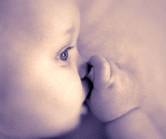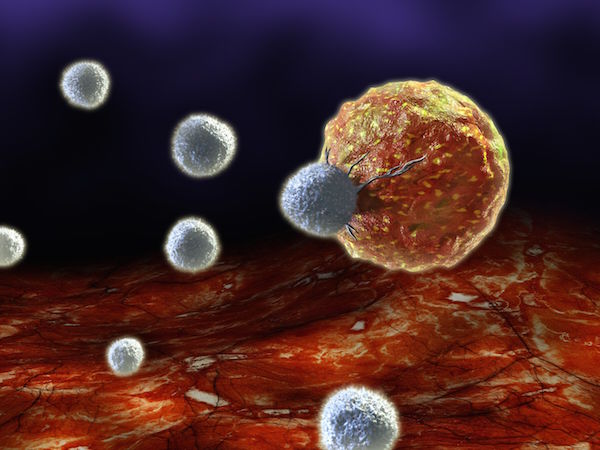
MONDAY, April 4 (HealthDay News) — Examining cells from a woman’s breast milk may help evaluate future breast health, new research suggests.
“It looks as if we can use the cells from breast milk to assess breast cancer risk,” said Dr. Kathleen Arcaro, an associate professor of veterinary and animal sciences at the University of Massachusetts in Amherst.
She is to present her findings Monday at the annual meeting of the American Association for Cancer Research in Orlando, Fla.
For the study, she collected breast milk from 271 women in the United States.
Most of the women had registered with the Love/Avon Army of Women, indicating they were willing to engage in breast cancer research. Others were recruited from doctors’ offices or cancer clinics. All had either undergone a biopsy of the breast to check for cancer, or were scheduled for one.
Arcaro evaluated breast milk samples from the biopsied and non-biopsied breasts. She isolated potentially cancerous cells, known as epithelial cells. Next, she isolated DNA to look for signals that regulate tumor suppressor genes.
She analyzed three genes among the many known to undergo a process called methylation in breast cancer. Methylation in a specific region of a gene can inhibit or suppress the expression of a gene, Arcaro said, “so it’s turned off.”
For one gene, SFRP1, the average methylation was higher in the biopsied breast, she found.
Among the women whose biopsies detected cancer, average methylation of the RASSF1 gene in the biopsied breast was considerably higher compared to the non-biopsied breast.
The researchers presented results for 182 women whose biopsy reports were complete and who had the DNA analysis.
Previous studies of these methylation patterns in breast cells used fine nipple aspiration or a technique called ductal lavage to retrieve the cells. Obtaining the cells from breast milk is noninvasive and inexpensive, Arcaro noted.
It’s too soon, however, to assess the cancer detection rate associated with breast milk cell examination, she said, but research is continuing.
“We can’t say at this point for two reasons,” she said. “One is, we need long-term follow-up. And the second really important reason is, we need to sample a larger panel of genes.”
Eventually, the hope is to use the breast milk screening on older mothers soon after they give birth. The test could supplement other breast cancer predictor tools, such as the Gail model, which takes factors such as age into account, Arcaro said.
The research has merit, said Dr. Priscilla A. Furth, a professor of oncology and medicine at Georgetown Lombardi Comprehensive Cancer Center.
Obtaining the cells seems to be the easy part, Furth said. “The question is, how good will this be? And I think this study does not yet answer that.”
Using it on a large scale for screening will only be valuable if its predictive value is high, she said. And that number is still being researched.
The findings should be viewed as preliminary as they are presented at a medical conference in advance of any publication in a peer-reviewed medical journal.
Arcaro is continuing the research and will accept milk samples from any
nursing mother who learns she needs a breast biopsy. If interested, contact her at the university, and she will arrange to have the sample picked up.
More information
To learn more about breast cancer, visit the U.S. National Cancer Institute.

